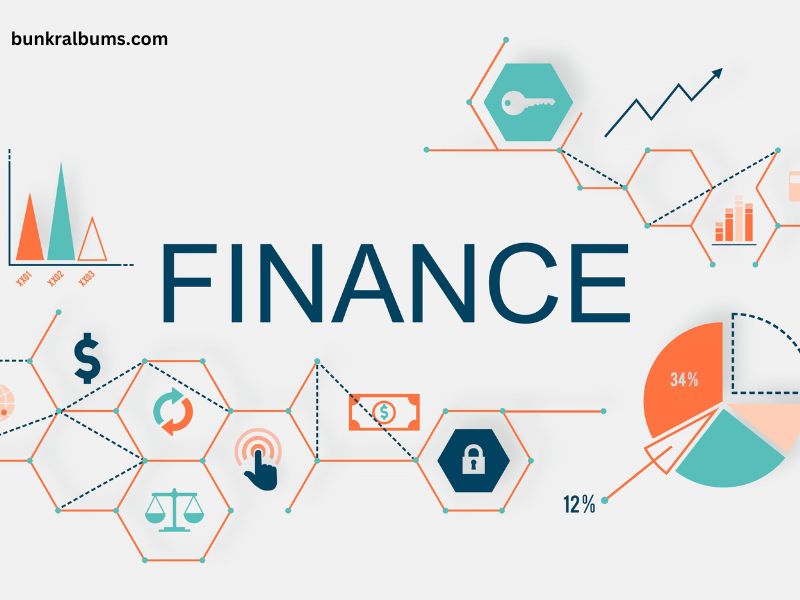Finance is a fundamental pillar of modern society, influencing everything from personal savings to global economies. But what exactly does finance mean? While many people associate finance solely with money or banking, its true scope is far broader and more intricate. Finance encompasses the management, creation, and study of money, investments, and other financial instruments. It is the backbone of both personal and corporate decision-making, and it plays a critical role in the functioning of national and international economies.
The Foundations of Finance
At its core, finance is about managing money. This includes activities such as saving, borrowing, lending, investing, and budgeting. The field is often divided into three main categories:
- Personal Finance: This branch deals with individual or household financial activities. It involves managing personal income, expenses, savings, and investments. Personal finance decisions include budgeting, purchasing insurance, paying off debt, saving for retirement, and making investment choices.
- Corporate Finance: This area focuses on how businesses manage their financial resources. It involves activities such as raising capital, investing in projects, managing cash flow, and planning for the long-term financial health of the company. Corporate finance also covers the strategies companies use to maximize shareholder value, such as mergers and acquisitions or dividend policies.
- Public Finance: Public finance relates to government expenditures, revenue collection (taxes), and budgeting. It plays a crucial role in ensuring economic stability and providing public goods and services. Public finance also involves managing the national debt and implementing fiscal policies to influence the economy.
Historical Perspective of Finance
Finance has evolved significantly over time. The earliest forms of finance can be traced back to ancient civilizations, where barter systems were replaced by the use of money. As trade expanded, so did the need for more sophisticated financial systems. The development of banks and other financial institutions in the Middle Ages marked a significant milestone in the history of finance.
The modern financial system as we know it began to take shape in the 17th century with the establishment of stock exchanges and the advent of joint-stock companies. The Industrial Revolution in the 18th and 19th centuries further accelerated the growth of finance, as it necessitated large-scale investments in infrastructure and industry. The 20th century brought about the rise of global finance, with the establishment of international financial institutions like the International Monetary Fund (IMF) and the World Bank.
Key Concepts in Finance
Several key concepts underpin the field of finance, each playing a crucial role in its theory and practice:
- Time Value of Money (TVM): This fundamental principle states that a dollar today is worth more than a dollar in the future due to its potential earning capacity. This concept is critical in finance, affecting everything from investment decisions to loan agreements.
- Risk and Return: In finance, risk refers to the uncertainty associated with any investment. Generally, the higher the risk, the higher the potential return. This relationship is a cornerstone of investment strategy, guiding decisions on asset allocation and portfolio management.
- Diversification: This is a risk management strategy that involves spreading investments across various assets to reduce the impact of any single investment’s poor performance on the overall portfolio. Diversification is a fundamental concept in both personal and corporate finance.
- Capital Structure: This concept relates to how a firm finances its overall operations and growth by using different sources of funds, such as debt and equity. The choice of capital structure can significantly impact a company’s profitability and risk profile.
- Liquidity: Liquidity refers to how easily an asset can be converted into cash without affecting its market price. In finance, liquidity is crucial because it affects a company’s ability to meet its short-term obligations and influences investment decisions.
- Market Efficiency: The Efficient Market Hypothesis (EMH) suggests that financial markets are “informationally efficient,” meaning that prices of securities reflect all available information at any given time. This concept has significant implications for investment strategies and financial analysis.
The Role of Financial Markets
Financial markets play a pivotal role in the economy by facilitating the flow of money and resources between different entities. These markets are where buyers and sellers meet to trade financial assets like stocks, bonds, currencies, and derivatives. Financial markets can be broadly categorized into:
- Capital Markets: These markets deal with long-term securities, such as stocks and bonds. They are crucial for raising capital for businesses and governments, enabling them to invest in projects and activities that drive economic growth.
- Money Markets: Money markets involve short-term debt securities, typically maturing in less than a year. These markets are essential for managing liquidity and providing a mechanism for short-term borrowing and lending.
- Foreign Exchange Markets (Forex): The Forex market is where currencies are traded. It is the largest and most liquid financial market in the world. Forex markets are essential for international trade and investment, as they enable the exchange of different currencies.
- Derivative Markets: Derivatives are financial instruments whose value is derived from an underlying asset, such as stocks, bonds, or commodities. Derivative markets are used for hedging risk and speculation, allowing participants to manage their exposure to various financial risks.
The Impact of Technology on Finance
The advent of technology has revolutionized finance, leading to the emergence of what is now known as “FinTech” (Financial Technology). FinTech refers to the use of technology to improve and automate financial services. It has had a profound impact on how financial transactions are conducted, how financial data is analyzed, and how financial products are developed.
- Digital Banking: Traditional banking has been transformed by digital platforms, enabling customers to conduct transactions online, access financial services via mobile apps, and manage their finances more efficiently. Digital banking has also increased financial inclusion by providing access to banking services in remote or underserved areas.
- Cryptocurrencies and Blockchain: Cryptocurrencies like Bitcoin and Ethereum have introduced a new asset class and a decentralized way of conducting transactions. Blockchain, the underlying technology of cryptocurrencies, has the potential to disrupt traditional financial systems by providing a secure, transparent, and tamper-proof way of recording transactions.
- Robo-Advisors: These are digital platforms that provide automated, algorithm-driven financial planning services with little to no human supervision. Robo-advisors have democratized access to investment management, offering personalized advice at a lower cost.
- Artificial Intelligence (AI) and Big Data: AI and big data analytics are transforming financial analysis, risk management, and customer service. Financial institutions use AI to analyze vast amounts of data, detect fraud, predict market trends, and personalize financial products for customers.
Ethical Considerations in Finance
While finance plays a critical role in economic development, it also raises important ethical questions. The global financial crisis of 2008, for example, highlighted the dangers of excessive risk-taking and lack of oversight in financial markets. Ethical finance seeks to align financial practices with moral values, emphasizing transparency, accountability, and social responsibility.
- Sustainable Finance: This approach integrates environmental, social, and governance (ESG) factors into financial decision-making. Sustainable finance aims to promote long-term economic growth while minimizing negative impacts on society and the environment.
- Corporate Governance: Effective corporate governance ensures that companies are managed in the best interests of shareholders and other stakeholders. It involves implementing policies and practices that promote transparency, accountability, and ethical behavior.
- Financial Inclusion: Ensuring that everyone has access to financial services is a key ethical consideration in finance. Financial inclusion aims to reduce poverty and inequality by providing affordable and accessible financial products to underserved populations.
The Future of Finance
The future of finance is likely to be shaped by ongoing technological advancements, regulatory changes, and evolving societal values. Several trends are expected to influence the direction of finance in the coming years:
- Digital Currencies: Central banks around the world are exploring the possibility of issuing digital currencies (CBDCs). These digital currencies could transform the way we conduct transactions, manage monetary policy, and ensure financial stability.
- Green Finance: As concerns about climate change grow, green finance is gaining traction. This involves directing capital towards projects and initiatives that have a positive environmental impact, such as renewable energy and sustainable agriculture.
- Decentralized Finance (DeFi): DeFi refers to the use of blockchain technology to create decentralized financial systems that operate without intermediaries like banks. DeFi has the potential to disrupt traditional finance by providing more open, transparent, and accessible financial services.
- Regulatory Changes: The financial industry is subject to constant regulatory scrutiny. Future regulations are likely to focus on enhancing transparency, protecting consumers, and addressing emerging risks associated with new technologies.
Conclusion
Finance is a multifaceted and dynamic field that touches every aspect of our lives. From managing personal finances to navigating the complexities of global markets, finance plays a crucial role in shaping our economic future. Understanding the fundamental concepts of finance, staying informed about emerging trends, and considering the ethical implications of financial decisions are all essential for anyone looking to thrive in this ever-evolving landscape. As finance continues to evolve, it will undoubtedly remain a cornerstone of modern society, driving innovation, growth, and prosperity.







